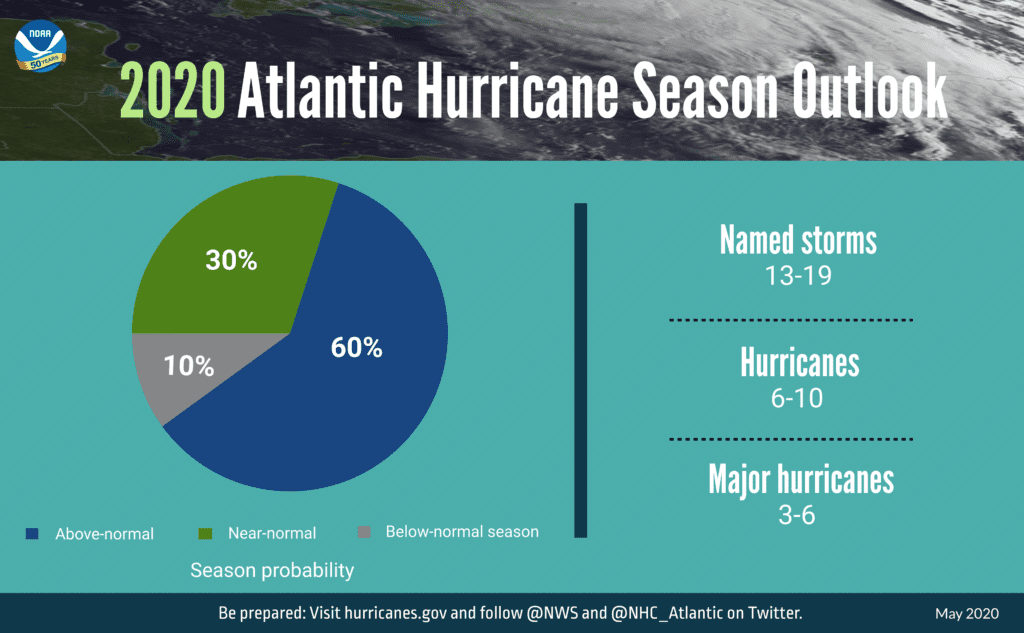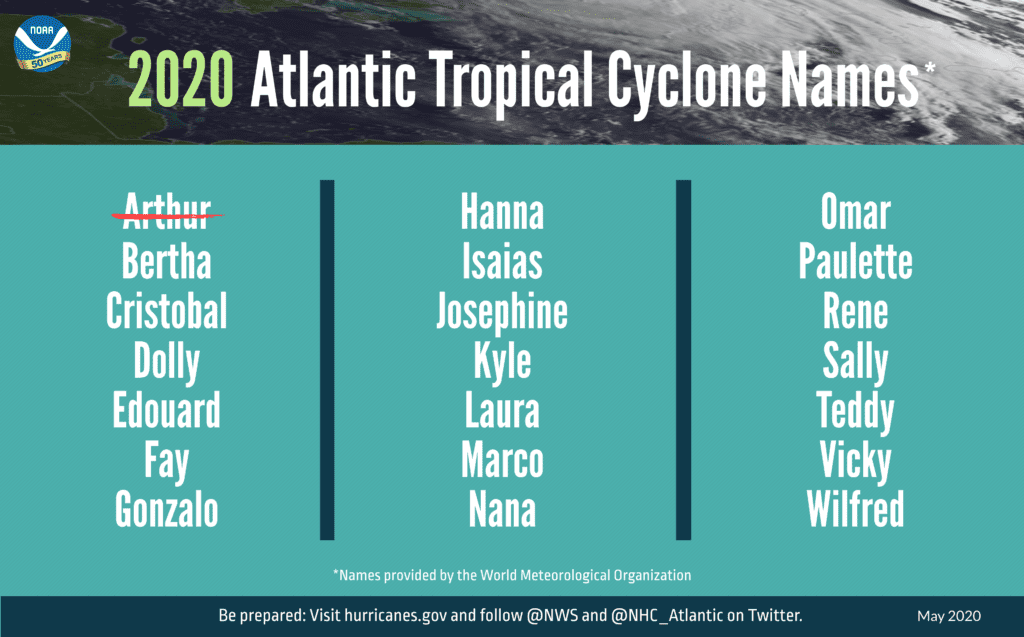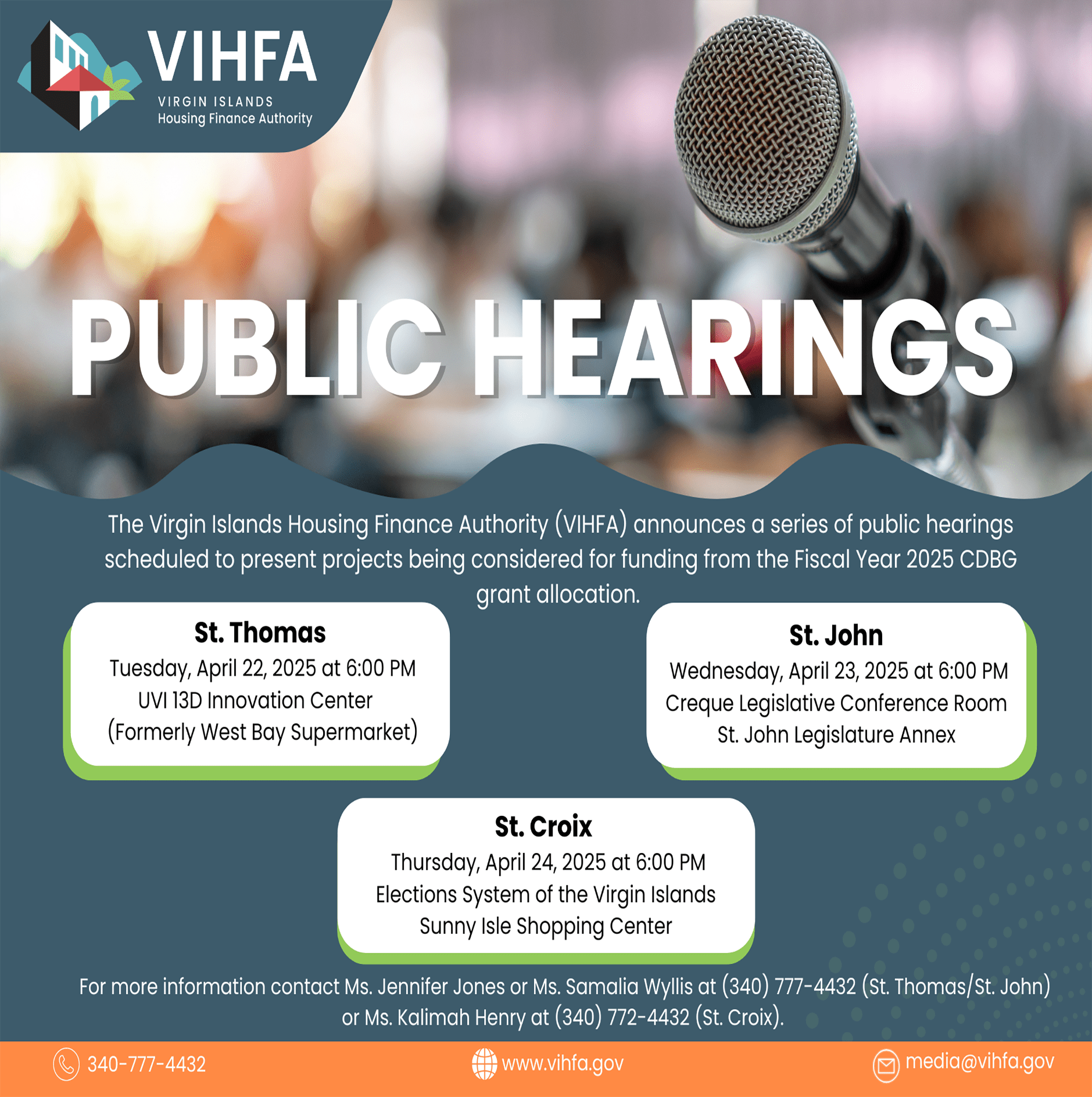
With the world preoccupied by the COVID-19 pandemic and less than two weeks to go until hurricane season, Neil Jacobs, the acting administrator of the National Oceanic and Atmospheric Administration, said “an above-normal season is most likely,” while one research meteorologist is saying there’s a possibility the season will be “extremely active.”
NOAA’s forecast calls for between 13 and 19 named storms and six to 10 hurricanes, three to six of which will be major hurricanes of Category 3 or higher. If the prediction pans out, it would mark a record five straight years of severe storm seasons.
“At this time, it is not possible to predict how many of these potential storms will land,” Jacobs said.
But Gerry Bell, lead hurricane forecaster at NOAA’s Climate Prediction Center, warned: “The 2020 Atlantic hurricane season is expected to be a busy one.” He said there is a chance the season could be “extremely busy.”
“What matters is we are expecting another above-normal season and now is the time to prepare,” Bell said.
In its forecast released Thursday morning, NOAA predicted a 60 percent chance of an above-normal season, a 30 percent chance of a near-normal season and only a 10 percent chance of a below-normal season.
The Atlantic hurricane season runs from June 1 through November 30.
An average hurricane season produces 12 named storms, of which 6 become hurricanes, including 3 major hurricanes.

“As Americans focus their attention on a safe and healthy reopening of our country, it remains critically important that we also remember to make the necessary preparations for the upcoming hurricane season,” said Secretary of Commerce Wilbur Ross (NOAA is under the Department of Commerce in the federal government).
Several climate factors are driving the strong likelihood for above-normal activity in the Atlantic this year, the report says.
El Niño Southern Oscillation (ENSO) conditions are expected to either remain neutral or to trend toward La Niña, meaning there will not be an El Niño present to suppress hurricane activity.
Warmer than average sea surface temperatures in the tropical Atlantic Ocean and Caribbean Sea, coupled with reduced vertical wind shear, weaker tropical Atlantic trade winds and an enhanced west African monsoon all increase the likelihood for an above-normal Atlantic hurricane season.
Similar conditions have been producing more active seasons since the current high activity era began in 1995.
“NOAA’s analysis of current and seasonal atmospheric conditions reveals a recipe for an active Atlantic hurricane season this year,” Jacobs said.
NOAA also announced that during the 2020 hurricane season, it will work with the U.S. Navy to deploy a fleet of autonomous diving hurricane gliders to observe conditions in the tropical Atlantic Ocean and Caribbean Sea in areas where hurricanes have historically traveled and intensified.
As with every hurricane season, the need to be prepared is critically important this year in the face of both a pandemic and hurricanes, the Federal Emergency Management Agency said.
“Social distancing and other CDC guidance to keep you safe from COVID-19 may impact the disaster preparedness plan you had in place, including what is in your go-kit, evacuation routes, shelters and more. With tornado season at its peak, hurricane season around the corner and flooding, earthquakes and wildfires a risk year-round, it is time to revise and adjust your emergency plan now,” said Carlos Castillo, acting deputy administrator for resilience at FEMA. “Natural disasters won’t wait, so I encourage you to keep COVID-19 in mind when revising or making your plan for you and your loved ones, and don’t forget your pets. An easy way to start is to download the FEMA app today.”
NOAA noted the report issued Thursday is for overall seasonal activity and is not a landfall forecast. The Climate Prediction Center will update the 2020 Atlantic seasonal outlook in August prior to the historical peak of the season.














